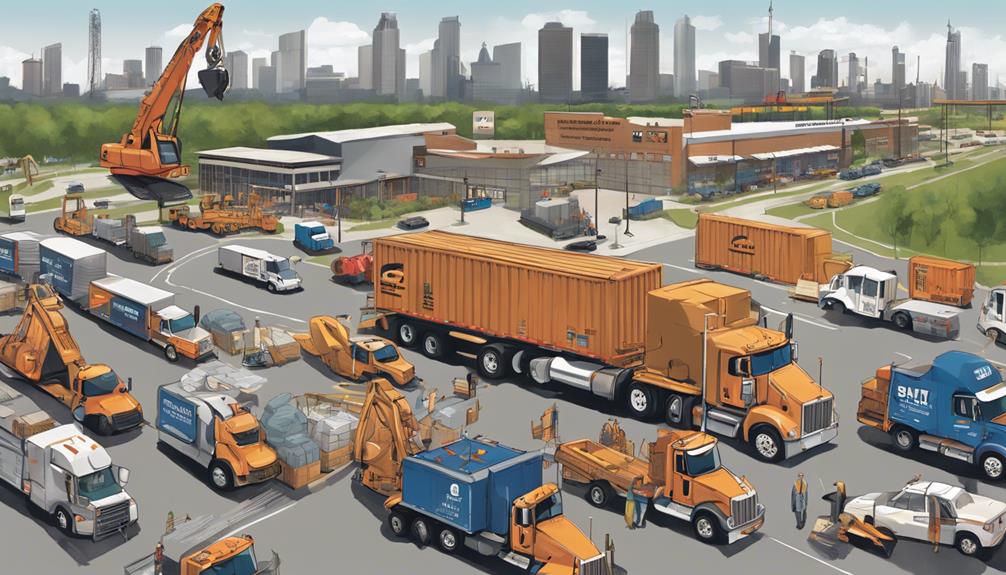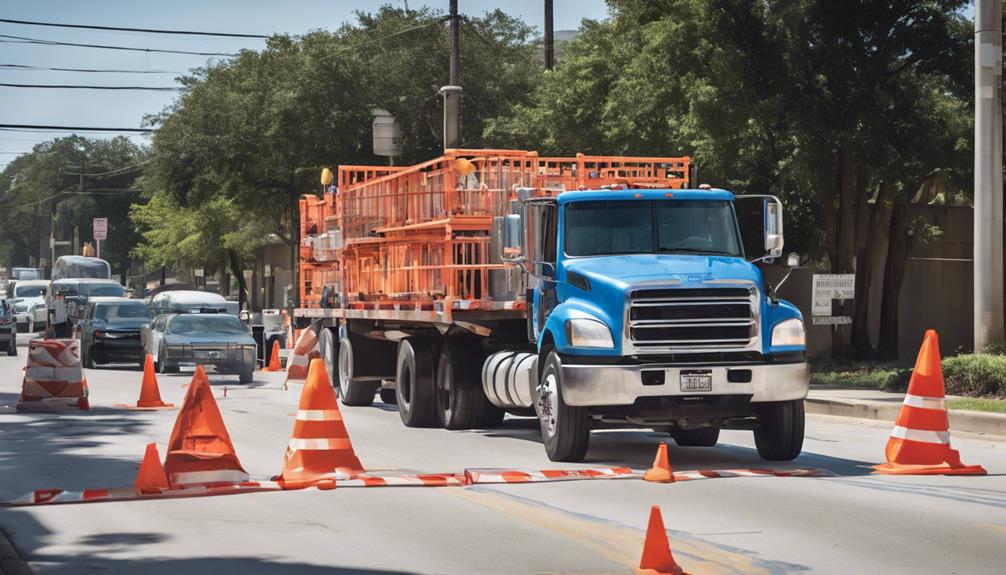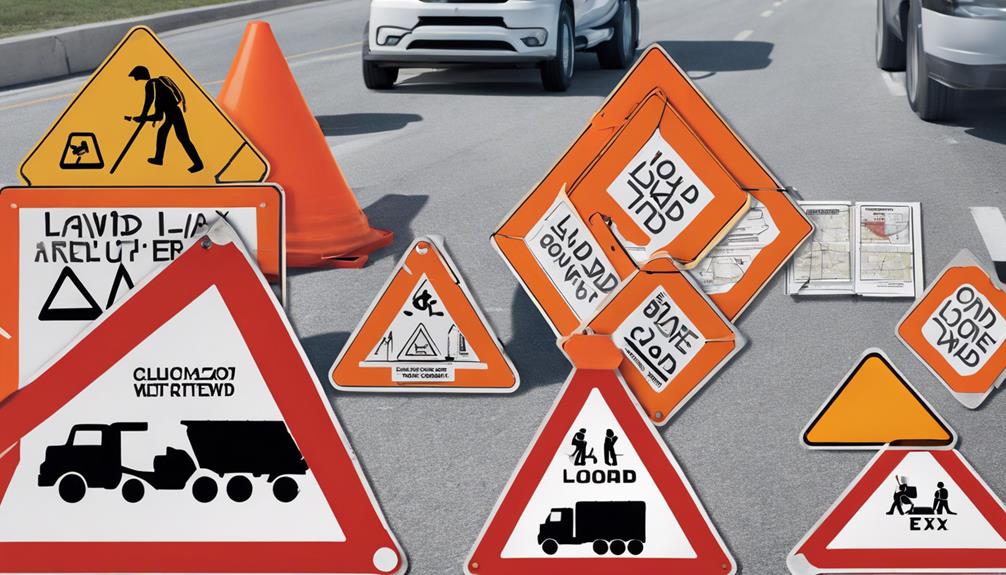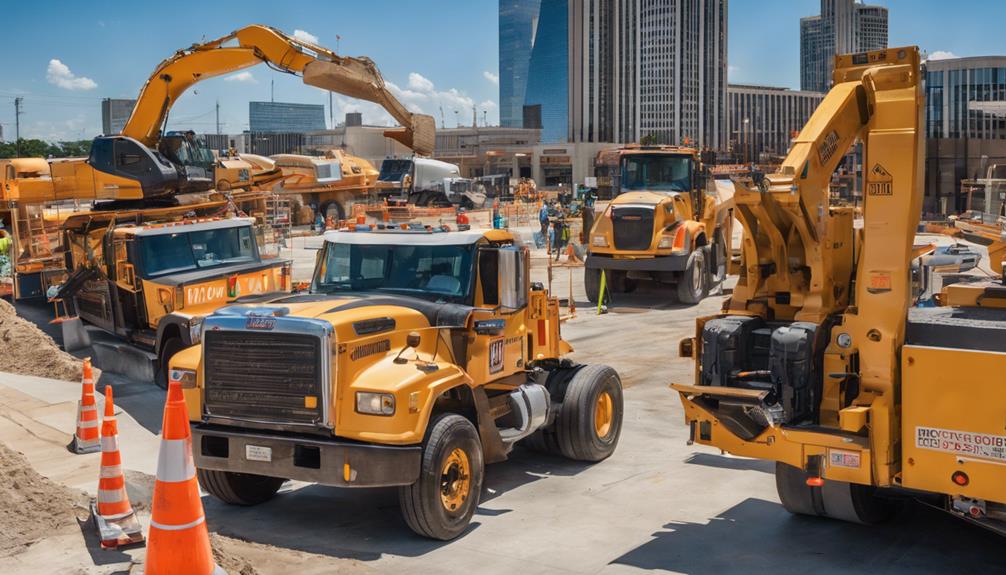When you're managing the transport of oversize, overweight, overlength, or overheight loads in Harris County, TX, securing the right bond is crucial for compliance and safety. You might be wondering what types of bonds are necessary and how they can impact your operations. Understanding the application process, associated costs, and regulatory guidelines can make a significant difference. But what happens if you overlook these requirements? The consequences can be more severe than you think, prompting a closer look at the implications of non-compliance.
Definition of Specialized Loads

When it comes to transportation, specialized loads refer to items that exceed standard dimensions or weight limits, requiring unique handling and permits. These loads can include large machinery, construction materials, or even oversized vehicles. Since they don't fit into the usual shipping guidelines, you'll need to take extra steps to ensure compliance with local regulations.
Understanding specialized loads is crucial for safe and efficient transport. You might encounter various categories, such as overweight loads that surpass weight limits, or overlength and overheight loads that exceed the standard length or height restrictions. Each type presents its own set of challenges, including the need for special routes, additional safety measures, and the possibility of detours.
Planning for these loads means you'll have to coordinate logistics carefully. You'll need to communicate with transport authorities to secure the necessary permits and ensure that your route accommodates the size and weight of your load.
Being proactive about these requirements can help you avoid delays or fines. So, whether you're moving construction equipment or transporting large goods, understanding the definition of specialized loads is your first step toward a successful journey.
Importance of Securing a Bond
Securing a bond is often essential for anyone transporting oversized loads, as it provides a financial safety net that protects both you and the public. When you're on the road with large or heavy items, unforeseen incidents can happen, from accidents to property damage.
Having a bond in place means you're prepared for these situations, ensuring that you can cover any potential liabilities without risking your personal finances. Additionally, bonds such as the Florida Department of Transportation (DOT) Bonds safeguard public infrastructure by ensuring compliance with state regulations.
In addition to protecting you financially, a bond boosts your credibility as a responsible operator. It shows that you take your responsibilities seriously and are willing to meet legal requirements. This can enhance trust among clients, partners, and authorities, making it easier for you to secure permits and contracts.
Furthermore, many jurisdictions, including Harris County, mandate bonds for oversized transport. Not having one can lead to fines, delays, or even the shutdown of your operations.
By securing a bond, you're not just complying with the law; you're also positioning yourself for smoother, more efficient transport operations.
In short, securing a bond is a smart move that safeguards your interests, enhances your professional reputation, and ensures compliance with regulations when dealing with oversized loads.
Types of Required Bonds

Understanding the types of required bonds for transporting oversized loads is crucial for ensuring compliance and protecting your business. In Harris County, you'll typically encounter two primary types of bonds: the surety bond and the cash bond.
License and permit bonds serve as guarantees to protect the public and ensure adherence to local regulations. A surety bond serves as a guarantee that you'll adhere to local regulations. If you fail to comply, the bond ensures that any penalties or damages are covered, providing peace of mind for both you and the authorities. This type of bond usually involves a third-party company that backs your obligation, and you'll often pay a premium based on the bond amount.
On the other hand, a cash bond requires you to deposit a specific amount with the county. This cash acts as a security deposit, which can be forfeited if you violate any transport regulations. While this may seem more straightforward, it ties up your capital until the bond is released.
Both bonds aim to protect public safety and infrastructure, but the choice between them often depends on your financial strategy and risk tolerance. Make sure to evaluate your options carefully before proceeding with your oversized load transport.
Application Process Overview
Navigating the application process for an oversize load bond in Harris County is essential for a smooth transportation experience.
First, you'll want to gather all necessary documentation, which typically includes your vehicle registration, proof of insurance, and details about the load you're transporting. Make sure you have accurate dimensions, weight specifications, and any special permits that may be required.
Next, you'll fill out the application form provided by the Harris County authorities. This can often be found online or at their office. Double-check all the information you provide to avoid any delays.
Once you've completed the form, submit it along with your supporting documents.
After submission, the county officials will review your application. This process may take some time, so it's wise to apply well in advance of your planned transport date.
If they require additional information, you'll need to respond promptly to keep things moving.
Fees and Costs Involved

When applying for an oversize load bond in Harris County, you'll encounter various fees that can impact your overall budget. First, there's the bond premium, which is typically calculated as a percentage of the total bond amount. This premium can vary based on your creditworthiness and the specifics of your load.
It's also important to be aware of the different types of bonds required for various operations, such as the Oklahoma Sales Tax Bond, which protects the state against unpaid sales tax obligations.
Additionally, you should expect to pay an application fee, which is generally required to process your request. This fee can range from $50 to $200, depending on the issuing agency.
Don't forget about the permit fees, which are charged by the county or state for the actual permit to transport your oversize load. These fees can also vary based on the size and weight of your load, but they usually fall between $30 and $300.
Moreover, if your load requires any escorts or additional safety measures, you'll need to factor in those costs too.
Regulatory Compliance Guidelines
Regulatory compliance is crucial for successfully transporting oversize loads in Harris County. To ensure you're following the necessary guidelines, familiarize yourself with local and state regulations regarding size, weight, and permits.
Start by obtaining a valid oversize load permit from the Harris County authorities, as this is your legal authorization to transport heavy or large items.
Next, you'll need to ensure that your vehicle meets all safety requirements. This includes having the appropriate signage, lights, and flags to alert other drivers of your oversized load. Make sure your vehicle is in good working condition and capable of safely handling the extra weight.
You should also plan your route carefully. Certain roads may have restrictions or limitations for oversize vehicles, so it's essential to choose paths that accommodate your load without violating any regulations.
Lastly, keep all documentation handy, including your permit and any inspection records. Being organized not only helps with compliance but also speeds up any checkpoints you may encounter during transport.
Exceptions and Special Cases

Understanding exceptions and special cases is essential for anyone dealing with oversize loads in Harris County. There are specific scenarios where standard regulations mightn't apply, allowing you to navigate the process more efficiently.
For instance, certain emergency situations may permit you to bypass typical restrictions, ensuring quick response times for essential services.
Additionally, if your load is temporarily oversized due to circumstances beyond your control, you might qualify for special permissions. This could include situations like construction projects where immediate adjustments are needed.
It's also worth noting that local authorities sometimes grant exemptions for specific loads or routes, particularly for unique circumstances like agricultural or industrial transport. These exceptions can help streamline your operations while maintaining compliance with local regulations.
Before proceeding, make sure you confirm any applicable exceptions by consulting with the Harris County transportation department. They can provide clarity on what qualifies and guide you through the necessary paperwork.
Being informed about these exceptions not only keeps you compliant but can also save you time and resources. Keep this information in mind, and you'll be better prepared for any challenges that may arise.
Consequences of Non-Compliance
Non-compliance with oversize load regulations in Harris County can lead to serious consequences that impact both your operations and finances. If you fail to obtain the necessary permits or adhere to weight restrictions, you could face hefty fines. These penalties can add up quickly, putting a strain on your budget and potentially affecting your bottom line.
Additionally, operating without proper authorization could result in your load being stopped or impounded. This not only delays your project but also incurs additional costs for storage and possible legal fees. If you're found to be repeatedly non-compliant, you may even face higher scrutiny from local authorities, leading to further complications down the road.
Moreover, non-compliance can harm your reputation. Clients and partners may hesitate to work with you if they perceive you as unreliable or careless. This could impact your ability to secure future contracts, ultimately limiting your business growth.
To avoid these pitfalls, it's crucial to stay informed about the regulations and ensure you're compliant at all times. Taking these steps will help protect your operations and maintain your financial health.
Resources for Further Assistance

When navigating the complexities of oversize load regulations in Harris County, leveraging available resources can make a significant difference. Start by visiting the Harris County Public Infrastructure Department's website, where you'll find comprehensive guidelines and application forms specific to oversize and overweight permits. This resource provides essential information on fees, routing, and any required documentation.
You can also reach out directly to the department via phone or email. Their staff can clarify any questions you have regarding the permitting process or specific regulations that may apply to your situation. Don't hesitate to ask for assistance; they're there to help you navigate the system smoothly.
Additionally, consider joining industry associations or local trucking groups. These organizations often share valuable insights and experiences related to oversize loads, and networking with fellow operators can provide support and information.
Lastly, review state and federal regulations on oversize loads. The Texas Department of Transportation (TxDOT) offers extensive resources and updates on laws that may impact your operations. By utilizing these resources, you can ensure compliance and avoid costly mistakes in your transportation activities.
Conclusion
In Harris County, securing a bond for your oversize, overweight, overlength, and overheight loads isn't just a formality—it's essential for smooth transport and compliance with regulations. By understanding the types of bonds needed and following the application process, you can avoid potential fines and delays. Don't overlook the importance of planning ahead and ensuring all documentation is in order. With the right preparation, you can navigate the complexities of transporting specialized loads with confidence.


